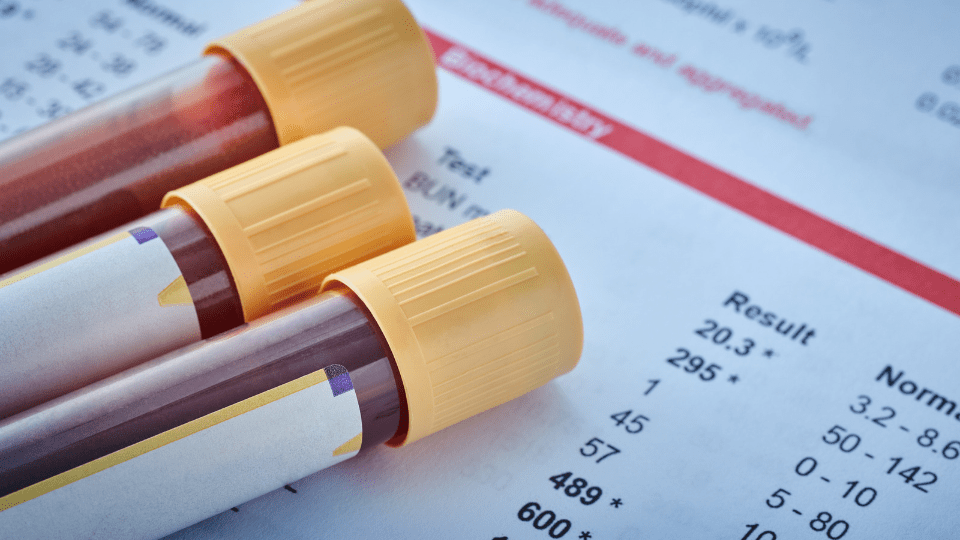Stress and Hair Loss
We get asked during our consultations, “Does stress cause hair loss?” nearly every single time when prescribing medication for it. Therefore, we decided to answer this question for you as best as we can, and as part of National Stress Awareness Month 2023.

Can stress lead to hair loss? The simple answer is yes, it can. But it’s complicated. Stress can trigger or exacerbate three types of hair loss: telogen effluvium, alopecia areata, and trichotillomania. While stress-induced hair loss is often temporary, it is essential to consult a doctor (or us) if it concerns you. Hair loss can be distressing and worrisome, regardless of age or gender, especially when the cause is unknown.
This article will explore how stress can cause hair loss, its symptoms, and potential treatment options.
Why does stress lead to hair loss?
Stress is commonly considered a psychological issue, but it can also impact your body. Chronic stress can result in an excess of stress hormones circulating throughout the body, negatively affecting it and potentially causing hair loss.
What are the typical symptoms?
The symptoms of stress-induced hair loss vary depending on the individual and the type of hair loss experienced. Let’s examine the different types of hair loss caused by stress.
Types of stress-induced hair loss
1. Telogen effluvium
Telogen effluvium, the most common type of hair loss caused by stress, occurs when more hairs move from the active growth phase (anagen) to the resting phase (telogen). This leads to an increased amount of hair loss than usual. Stressful experiences can shorten the anagen phase and push more hairs into the telogen phase, making stress a known trigger for this type of hair loss.
2. Alopecia areata
Alopecia areata, another type of hair loss triggered by stress, is believed to be related to the immune system. This condition causes small, coin-sized bald patches across the scalp, face, and body. Stress is considered a trigger that can initiate the symptoms of alopecia areata. One theory suggests that stress hormones affect the immune system, causing immune cells to target hair follicles.
3. Trichotillomania
Trichotillomania, the compulsive urge to pull out one’s hair, can be influenced by stress in some individuals.
Can hair grow back after it is lost?

In most cases, this type of hair loss is temporary. Telogen effluvium typically resolves within six to nine months, while mild alopecia areata may also experience regrowth.
Treatments for stress-related hair loss
Various treatments are available if hair does not regrow fully or at all.
Minoxidil (Regaine) is a topical treatment applied directly to the scalp to address thinning caused by telogen effluvium.
A range of treatments are available for alopecia areata, including steroid creams, lotions, tablets, injections, dithranol, and immunotherapy.
Psychological therapy, such as cognitive-behavioral therapy (CBT), is considered the most effective treatment for trichotillomania, which is often related to anxiety or obsessive-compulsive behaviour.
Helping you manage Stress
To reduce stress-related hair loss, consider the following management tips:
— Identify stressors in your life and act on them
— Take control of stressful situations
— Exercising regularly greatly reduces stress hormones
— Connect with friends, family, and colleagues – regain social connections
— Reduce alcohol, smoking, and caffeine consumption
— Maintain a healthy, balanced diet
Male Pattern Baldness
The most common cause of hair loss in men and women is androgenetic alopecia, known as male pattern baldness in men and female pattern baldness in women. This type of hair loss affects approximately 50% of men over 50 and 40% of women over 50.
Therefore, you mustn’t confuse genetic hair loss with the stress-induced type, as hair loss is such a common, natural and normal, condition.
We are able to prescribe a treatment for this type of hair loss. Following a consultation online, you’ll be able to select your preferred medicine and our prescribers will assess whether the treatment will be suitable for you.

This blog post was written on behalf of Halo Pharmacy by Pharmacy Mentor.




